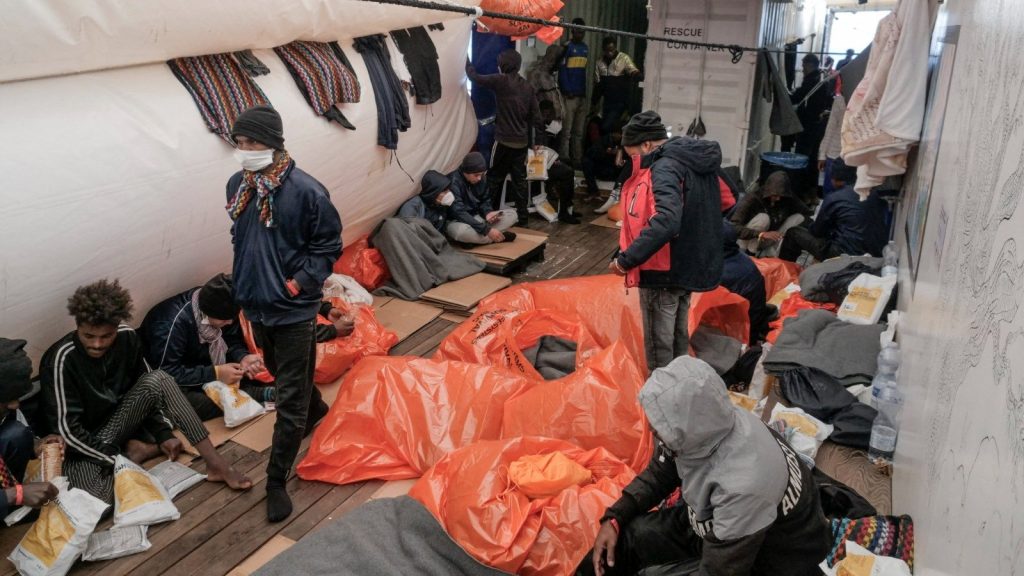Migration across the Mediterranean Sea is as old as humanity, and while some governments say they want to stop that movement of people, it will not and should not happen, Pope Francis said.
"Migration is essential to the well-being of this area and cannot be stopped. Therefore, it is in the interest of all parties to find a solution that is inclusive of the various aspects and just demands, beneficial to all and ensures both human dignity and shared prosperity," Pope Francis wrote in a message to participants in the Italian foreign ministry's annual Rome MED Dialogues.
The lack of coordinated solutions to help potential migrants thrive in their home countries and to welcome those who set off for Europe "continues to result in unacceptable and almost always avoidable loss of life, especially in the Mediterranean," the pope wrote.
The meeting Dec. 1-3 brought together representatives of the European Union and European countries on the Mediterranean with representatives from the Middle Eastern and North African nations that face the sea and that often are crossed by migrants and refugees seeking a better life in Europe.
For millennia, the Mediterranean was a crossroads of civilizations and cultures and a place of encounter that benefited all humanity, the pope said. It has "a vocation for progress, development and culture that unfortunately seems to have been lost in the recent past and that needs to be recovered fully and with conviction."
Natural or human-made borders that delineate the boundaries of a nation or continent also mark a point of connection and potential exchange, which is almost impossible to prevent, he said. And, besides, simply attempting to close borders would end the sea's history as "a place of encounter, exchange, sharing and collaboration."
"It is precisely in this crossroads of humanity that so many opportunities await us," the pope insisted. "Therefore, we must resume the culture of encounter from which we have benefited so much, and not only in the past. In this way, a sense of fraternity can be rebuilt, developing not only more just economic relations but also more humane relations, including those with migrants."
As the government representatives and experts look at the complex problems surrounding migration and other issues around and across the Mediterranean, he said, they cannot ignore how interconnected the problems are, particularly regarding conflict, climate change, poverty and migration.
"Indeed," he wrote, "the Ukrainian conflict is having enormous repercussions in North African countries, which are 80% dependent on grain from Ukraine or Russia. This crisis urges us to consider the totality of the real situation from a global perspective, just as the effects are global."
"Just as one cannot think of addressing the energy crisis apart from the political one, one cannot at the same time solve the food crisis apart from the persistence of conflicts, or the climate crisis without considering the migration problem, or the relief of the most fragile economies, or even the protection of fundamental freedoms," he said.
"Nor can one consider the vastness of human suffering," he wrote, "without taking into account the social crisis, in which, for economic or political gain, the value of the human person is diminished and human rights are trampled upon."

